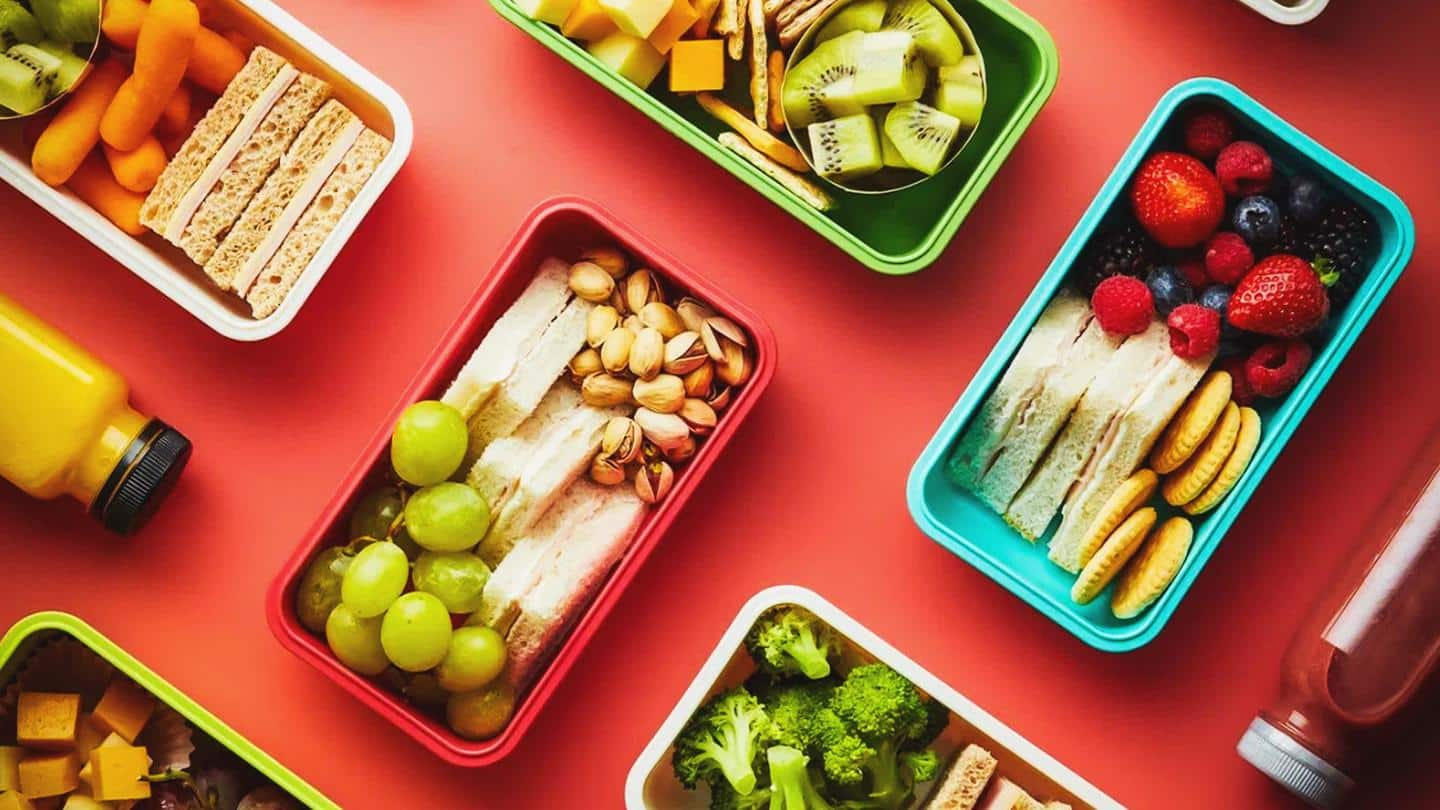
5 mistakes you are making in your weight loss journey
What's the story
Losing weight requires a lot of hard work, determination, willpower, and being consistent with your exercise routine and diet plan.
While trying to lose weight, you will come across a lot of tips and suggestions from peers.
However, all of these suggestions might not be helpful and end up causing you harm.
Here are five mistakes you can make in your weight loss journey.
Mistake 1
Opting for low-fat and diet foods
Many people believe that diet food or processed low-fat food items are healthy and will help them lose weight -- that's not true.
Most of these food items like "low-fat flavored yogurt" and "healthy protein bars" are loaded with sugar and saturated fats. They also make you feel hungrier.
Instead, choose nutrient-rich fruits and vegetables that will help you lose weight naturally.
Mistake 2
Avoiding proteins
Many people believe that proteins lead to weight gain and end up consuming fewer proteins, which is the wrong approach.
Protein actually aids in weight loss by reducing appetite, keeping you full for a longer time, increasing metabolic rate, and protecting muscle mass during weight loss.
Apart from meat and dairy, you can also consume many plant-based foods for your daily dose of protein.
Mistake 3
Not drinking enough water
We often tend to confuse the feeling of thirst with hunger when our body is dehydrated and needs a lot of liquid.
Drinking less water throughout the day can decrease your metabolism and cause weight gain.
On the contrary, drinking enough water daily prevents unnecessary eating, boosts your metabolism, increases your energy levels, and burns off fat from food and drinks quicker.
Poll
Which weight loss options are you looking for today?
Mistake 4
Following crash diets
Crash diets often promise weight loss in a short span of time by asking you to consume fewer calories daily.
This is a harmful practice, as it can weaken your immune system, deprive your body of essential nutrients, slow down your metabolism and cause weight gain in the future.
They can also increase the risk of dehydration and cardiac stress.
Mistake 5
Not getting enough sleep
If you think that sleep and weight loss have no connection, then you are wrong.
Stop staying up very late at night browsing your smartphone, and make sure to get at least seven hours of sleep.
Poor sleep schedule lowers the levels of leptin and causes overproduction of ghrelin, making you feel hungry at night which eventually leads to weight gain.


